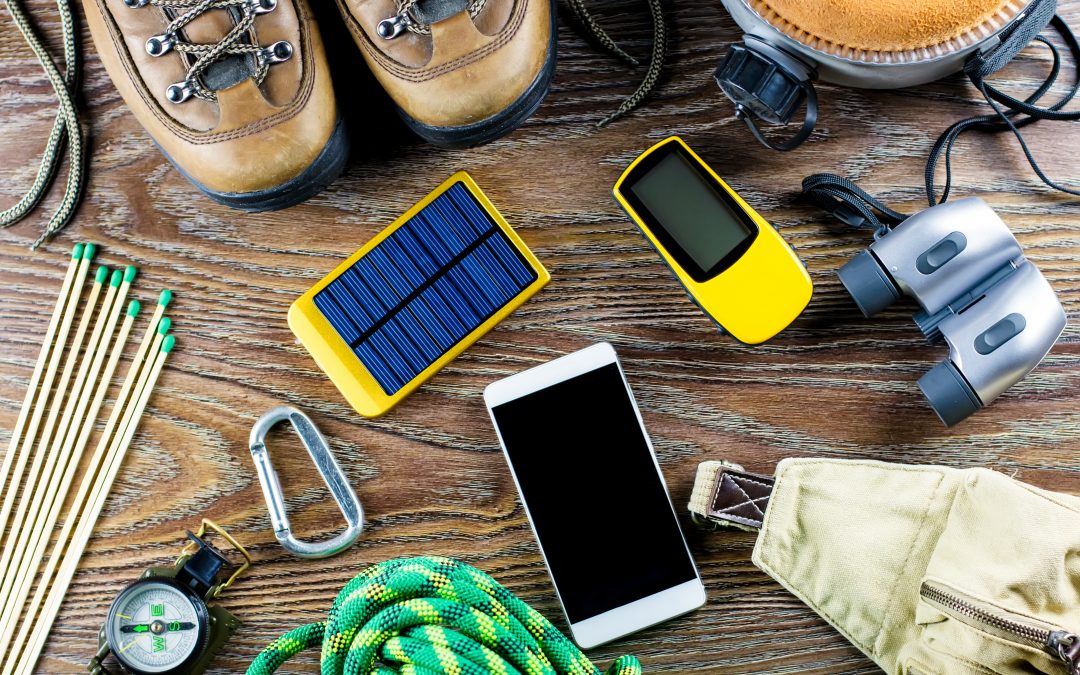In a world increasingly moving toward sustainable energy, solar power has gone beyond large-scale solar farms and residential rooftop systems. The growing interest in solar-powered gadgets is opening up new possibilities for harnessing the sun’s energy in everyday life. Consumers are increasingly turning to smaller solar-powered items like solar generators, solar water heaters, and portable solar panels to reduce their reliance on conventional energy sources. These devices not only offer eco-friendly solutions but also provide convenience, especially in areas where access to traditional power grids is limited or unreliable.
1. Solar Generators: Green Backup Power
Solar generators have become a popular choice for those seeking backup power that doesn’t rely on fossil fuels. Unlike conventional gas-powered generators, solar generators capture and store energy from the sun in a battery, providing a clean and quiet source of power. They are ideal for use during power outages, outdoor activities like camping, and in remote areas where access to the grid is limited.
One of the major advantages of solar generators is their versatility. They can power a wide range of devices, from small electronics like smartphones and laptops to larger appliances like refrigerators, depending on the generator’s capacity. Moreover, advancements in battery technology, particularly with lithium-ion batteries, have improved the efficiency and storage capacity of solar generators, making them more practical for long-term use.
Solar generators are also a significant improvement over traditional gas generators in terms of maintenance and environmental impact. Without the need for fuel, solar generators eliminate emissions and noise, making them a more sustainable option for backup power.
2. Solar Water Heaters: Sustainable Heating Solutions
Solar water heaters are another example of a smaller-scale solar-powered technology gaining traction. They offer an efficient and environmentally friendly way to heat water for residential and commercial use. Unlike traditional water heaters that run on electricity or gas, solar water heaters use solar collectors, typically mounted on rooftops, to absorb sunlight and convert it into heat.
There are two main types of solar water heaters: active and passive systems. Active systems use pumps to circulate water or a heat-transfer fluid, while passive systems rely on natural convection. Both systems are highly efficient and can significantly reduce energy bills, especially in sunny climates.
Solar water heaters can be used for a variety of applications, including providing hot water for domestic use, space heating, and even pool heating. Although the upfront cost of installing a solar water heater can be higher than a conventional water heater, the long-term savings and environmental benefits make it an attractive option for homeowners looking to reduce their carbon footprint.
3. Portable Solar Panels: Power on the Go
Portable solar panels are gaining popularity among outdoor enthusiasts, travelers, and anyone looking for a reliable, renewable power source on the go. These compact, lightweight panels can be easily transported and set up in a variety of locations, making them ideal for camping trips, RV living, or emergency situations.
Portable solar panels can be used to charge small devices like smartphones, tablets, and GPS systems, as well as larger items such as portable generators or batteries. Many portable panels come with USB ports or adapters that allow users to charge their devices directly from the panel, providing an off-grid power source for anyone in need.
The convenience of portable solar panels is further enhanced by their durability. Many of these panels are designed to withstand outdoor conditions, including rain, dust, and extreme temperatures, making them a reliable choice for long-term outdoor use.
As the demand for off-grid energy solutions grows, innovations in solar technology are continuously improving the efficiency and portability of these panels. Newer models are becoming more lightweight, compact, and efficient, offering more power without increasing the size of the panel.
The Future of Solar-Powered Gadgets
The rise of solar-powered gadgets represents a growing shift toward sustainable, decentralized energy solutions. As solar technology continues to improve and become more accessible, we can expect to see even more innovative solar devices on the market. Whether it’s for emergency preparedness, outdoor adventures, or everyday use, solar-powered gadgets offer a practical and environmentally friendly way to harness the power of the sun.
Moreover, with growing concerns about climate change and the need to reduce carbon emissions, smaller solar-powered items like generators, water heaters, and portable panels are part of the larger movement toward renewable energy. These gadgets not only offer a clean alternative to traditional energy sources but also help consumers reduce their dependency on the grid, save on energy costs, and minimize their environmental impact.
For solar companies, the growing interest in solar-powered gadgets presents an opportunity to expand product offerings and reach a broader market. As more people recognize the benefits of solar energy, from cost savings to sustainability, the demand for small-scale solar devices is expected to continue rising.
The increasing popularity of solar-powered gadgets like solar generators, water heaters, and portable panels highlights the versatility and accessibility of solar energy. These devices allow consumers to harness the sun’s power in a variety of applications, from backup power during outages to on-the-go charging during outdoor activities. As solar technology advances and more people seek eco-friendly alternatives, the market for solar-powered gadgets is poised to grow, offering sustainable solutions for both everyday needs and unique circumstances.


Recent Comments